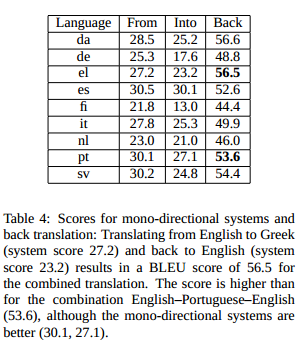I would like to know whether
- this is feasible or has already been done by someone
- it's possibile to predict its outcome
The experiment I came up with is the following: a random text written in language A is chosen, alongisde a target language B. Then the following two steps are reiterated N times:
- The text is translated into language B
- The translated text gets translated back into A
If done by humans, the translator would have to be a different person each time not to get biased (there will have to be 2*N translators). The meaning of the text is assumed to be preserved at each step.
After this whole process has ended, I'd like to know how the final text in language A differs from the original copy, and what has changed in all the different versions of the text. Possible outcomes I have though of so far:
- The text converges to a final text for N suffcientely large. (Is the final text simpler, more complex or neither?)
- The text changes indefinitely at each step.
- Complex or uncommon words/constructions turn into simpler ones, simpler meaning that this word/construction is more common.
- All the synonyms appear in the various copies of the text in a ratio similar to that you have in the spoken/written language.
- Nothing can be said as the choice of A and B influences the outcome too much. (What would be the right parameter to do so then?)
Help with the tags is appreciated, as I'm not a linguist nor a linguistics student.
